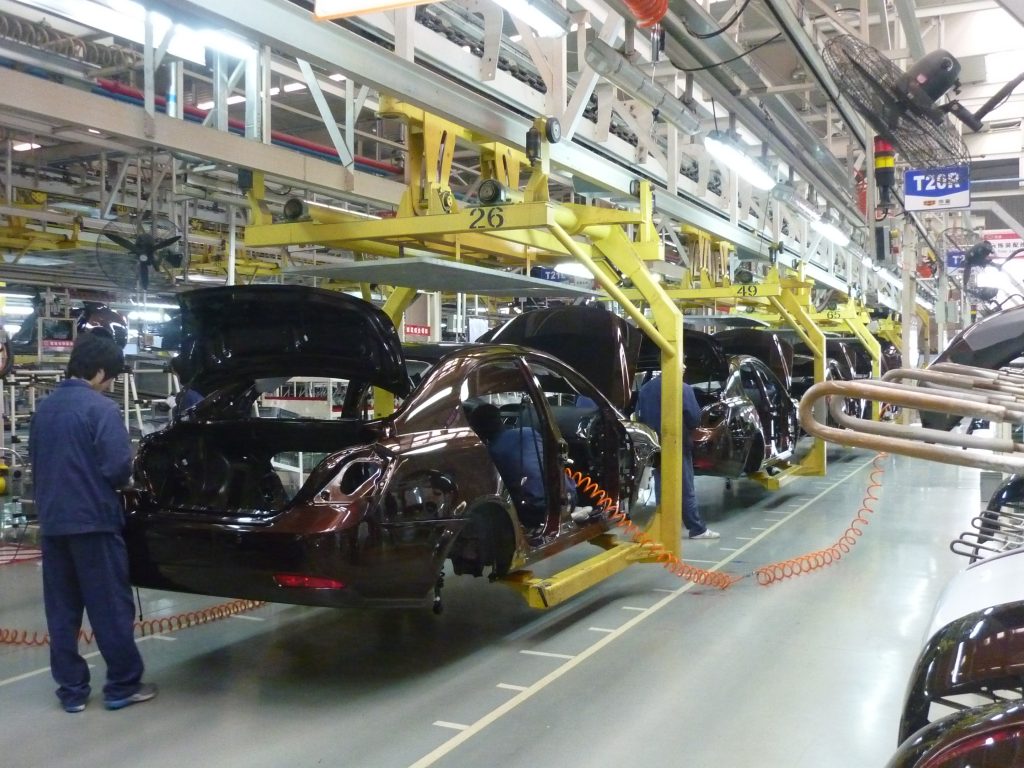September 3, 2020: The first set of August economic data has brought some cheer, with indicators such as the Purchasing Managers’ Index for manufacturing and Nomura’s business resumption index hitting a post-lockdown high. Other indicators such as power and fuel demand, railway freight and mobility indices showed improvement while passenger car sales rebounded. Goods and services tax (GST) collections were however tepid. They came a day after the Indian economy posted a sharper-than-expected 23.9% contraction in the June quarter from a year ago.
The IHS Markit India Manufacturing Purchasing Managers’ Index (PMI) rose to a six-month high of 52 in August from 46 in July. A reading above 50 indicates expansion. Output and new orders expanded at the fastest pace since February. “August data highlighted positive developments in the health of the Indian manufacturing sector, signalling moves towards a recovery from the second quarter downturn,” said IHS Markit economist Shreeya Patel.
“The pick-up in demand from domestic markets gave rise to upturns in production and input buying,” Patel said.
The Nomura India Business Resumption Index (NIBRI) rose to a post-lockdown high of 75.7 for the week-ended August 30 from 73.4 in the week before. Nomura said there had been a pickup in business normalisation in August with mobility indicators looking up after a prolonged flattening and power demand recovering. However, the labour participation rate fell to 39.5% from 40.5% in the previous week and the unemployment rate worsened to 8.1% from 7.5%, Nomura said.
GST collections in August stood at ?86,449 crore — 88% of the year-earlier level. Collections in July were marginally higher but at 85.6% of the year earlier.
“Revenues from domestic transactions (including import of services) were 92% of the revenues from these sources during the same month last year,” the government said, adding that taxpayers with turnover less than ?5 crore continue to enjoy relaxation in filing of returns till September.
The slump in power consumption narrowed to just 0.85% year-on-year in August at 110.57 billion units (BU), official data showed Tuesday.
The Google Mobility index, which measures visits to different locations such as retail shops, workplaces, parks and transport hubs, showed a 2% rise in trends for places such as supermarkets, food warehouses, farmers’ markets, speciality food shops and pharmacies on August 28.
Maruti Suzuki, country’s biggest car maker, sold 124,624 units in August, a growth of 15.3% over the preceding month and 17.1% over the year earlier.
Railway freight traffic was up 3.6% in August compared with the year earlier.
Petrol consumption rose by about 2% in the first fortnight of August from the corresponding period in July. E-way bills, another widely followed indicator of business activity, reached 99.8% of last year’s level in August.
The contraction in India’s infrastructure sector slowed to 9.6% in July compared with 12.9% shrinkage in June. Credit growth remained flat at 5.52% for the fortnight ended August 14 compared with 5.51% in the fortnight ended July 31.
“It is heartening to see that the banking sector has largely been able to insulate itself from the disruption due to greater technology integration and quick rollout of work from home measures and banking being an essential service,” said Soumya Kanti Ghosh, group chief economic adviser, State Bank of India.
The data is in line with government expectations of a sharp revival in fortunes. “India is definitely experiencing a V-shaped recovery, so we should expect better performance in the subsequent quarters,” chief economic advisor Krishnamurthy Subramanian had said Monday after June quarter numbers were announced.
Source: Economic Times






